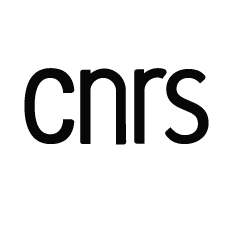Projet MESHS "Ars sophistica"
ArS
Responsable scientifique : Leone Gazziero (CNRS, UMR 8163 Savoirs, Textes, Langage)
Membres du projet : Aurélien Djian (CDD), Roberta Padlina (CDD)
Début du projet : 01/02/2019
Fin du projet : 31/09/2020
Durée du projet : 20 mois
Financeur : MESHS (29 171 €) https://www.meshs.fr/page/fallaciae_sophismata_state_of_the_art
Résumé du projet :
« Logic in Reverse. Fallacies in the Latin and the Arabic traditions » (« RevLog » Project for short) will show that this picture is misleading and will replace it with a new narrative which will bring to bear the full resources of mediaeval logical and legal treatment of fallacies across the Latin and the Islamic worlds. In an original attempt to explore how mediaeval logicians, philosophers and jurists handled fallacies both in the Latin West and in the Islamic tradition, « RevLog » will work across disciplines and across cultures to redefine the way we describe, classify, and – hopefully – avoid fallacies in the light of mediaeval logical and legal achievements. To this purpose, « RevLog » Project will set up a research joint venture whose main objective is to bring together specialists from different backgrounds – history of Ancient and Latin mediaeval logic (Laurent Cesalli, Leone Gazziero and Frédéric Goubier), Arabic logic and Islamic juridical disputation (Shahid Rahmann and Tony Street), as well as Digital Humanities (Roberta Padlina) – in order to study medieval fallacies and fallacy theories within and across the Latin and the Islamic worlds. The very notion of a cross-cultural interdisciplinary approach to argumentative failures is, as far as the Latin and the Islamic traditions are concerned, unprecedented. Moreover, « RevLog » will look at fallacious arguments within an extended corpus, which is also unprecedented. As a matter of fact, texts from the corpus of the Latin « fallaciae » (fallacies) and the Arabic « mughalatat » (fallacies) will be edited and studied, for the first time, alongside texts from their twin corpus, that is the collections of Latin « sophismata » (logical and grammatical puzzles), on one hand, and the legal literature of the Islamic « uṣūl al-fiqh » (legal theory), on the other hand. In order to do so, « RevLog » will develop an innovative computational infrastructure to deal with the wealth of data the Project will produce and exploit. « AskSten » (as in Sten Ebbesen) will be the Project’s most innovative asset as it will provide a multi-layered research environment whose digital archive, dynamic database, Semantic Web architecture and on-line deployment will dramatically enhance the expressivity and the coherence of « RevLog » findings.
